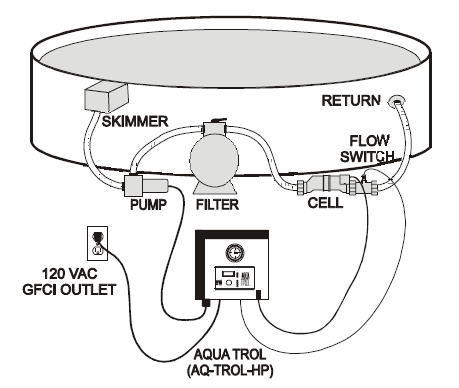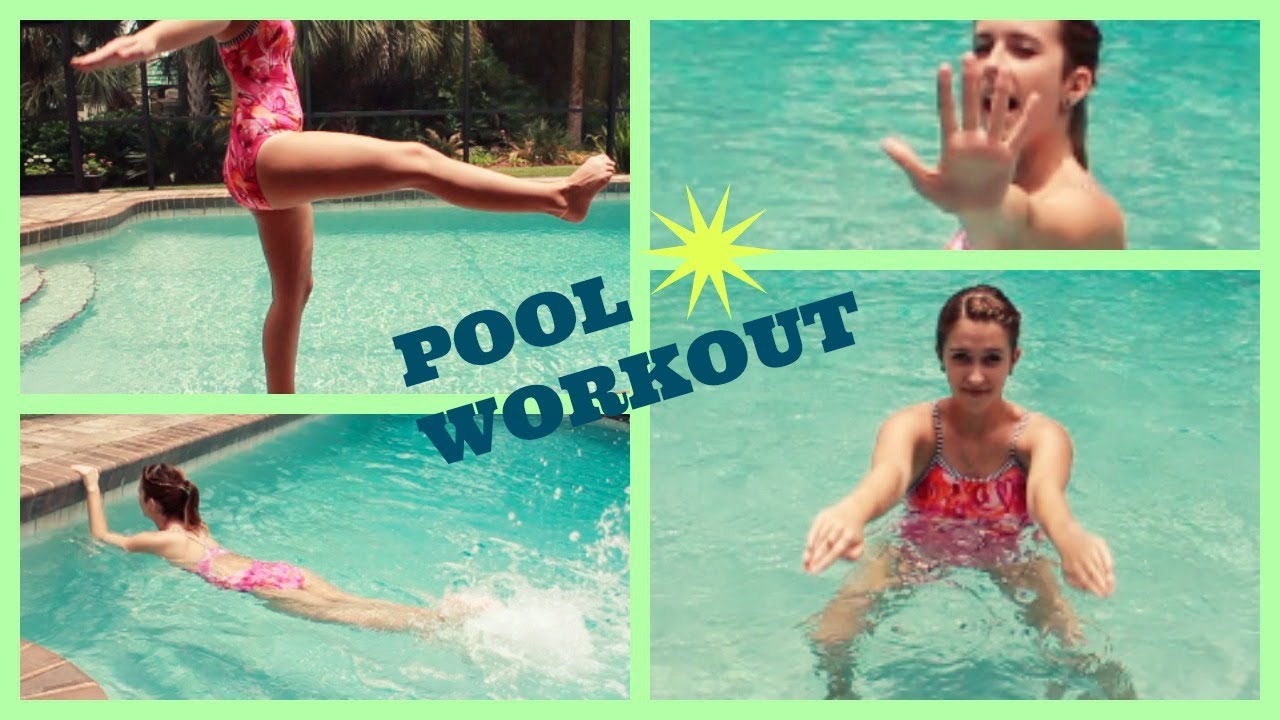Have you ever wondered if leaving the cover on or off your above ground pool affects how quickly it heats up? In this article, we explore whether keeping the pool cover on or removing it can impact the heating process. Discover the answer as we delve into the science behind pool temperature regulation, helping you make an informed decision for your swimming experience.
This image is property of images.pexels.com.
Factors Affecting Pool Heating
Climate
The climate of the area where your pool is located plays a major role in the pool heating process. In warmer climates, the sun’s rays are stronger and more consistent, resulting in faster pool heating. Conversely, in cooler climates, the pool may take longer to heat up, especially during the colder months.
Pool Size
The size of your pool directly affects its heating efficiency. Larger pools generally require more time and energy to heat up compared to smaller pools. This is because the volume of water in the pool plays a significant role in determining the heating time and energy consumption.
Pool Depth
The depth of your pool is another factor that affects its heating. Shallow pools tend to heat up faster than deeper pools because there is less water volume to heat. If you have a deep pool, it may require more time and energy to reach the desired temperature.
Pool Location
The location of your pool can also influence its heating. If the pool is located in an area with ample sunlight exposure, it will receive more direct heat from the sun, resulting in faster heating. On the other hand, if the pool is surrounded by shade or obstructed by buildings or trees, it may receive less sunlight and take longer to heat up.
Water Temperature
The initial temperature of the water in your pool also plays a role in how quickly it can heat up. If the water is already warm, it will heat up faster compared to cold water. It’s important to consider the starting temperature of the water when determining the heating time and energy required.
Sun Exposure
The amount of sun exposure your pool receives throughout the day affects its heating efficiency. A pool that is exposed to direct sunlight for longer periods will absorb more solar radiation and heat up faster. However, if the pool is in a shaded area or gets limited sun exposure, it may take longer to heat up.
Wind Exposure
Wind exposure can affect pool heating by increasing heat loss through evaporation. Strong winds can cause the water on the pool’s surface to evaporate at a faster rate, resulting in heat loss. To minimize the impact of wind exposure, consider using windbreaks or pool covers to prevent excessive evaporation and heat loss.
Pool Cover
Using a pool cover can greatly impact the heating efficiency of your pool. A pool cover acts as a barrier to prevent heat loss through evaporation and help retain the heat in the water. It also helps to reduce the exposure of the pool to external factors such as wind and sunlight, further enhancing its heating capabilities.
Insulation
The insulation of your pool also affects its heating efficiency. Proper insulation can help retain the heat in the pool water, reducing the energy required to maintain the desired temperature. Consider insulating the pool walls and floor or using insulated pool covers to improve heating efficiency.
Pool Heating System
The type of heating system you use for your pool can significantly affect its heating capabilities. There are various options available, including solar heating, gas heating, electric heating, and heat pumps. Each heating system has its advantages and disadvantages, so it’s essential to choose one that suits your pool size, climate, and budget.
Understanding Pool Covers
Types of Pool Covers
There are different types of pool covers available in the market, each with its unique features and benefits. Solar covers, also known as solar blankets, are designed to harness the sun’s energy to heat the pool water. Thermal blankets provide insulation, reducing heat loss and evaporation. Safety covers are designed to prevent accidental falls into the pool while also offering some level of heat retention. Mesh covers are lightweight and allow rainwater to pass through while blocking debris.
Benefits of Using a Pool Cover
Using a pool cover offers numerous benefits, including increased heating efficiency, reduced evaporation, and lower maintenance requirements. Pool covers help retain the heat in the water, reducing the need for additional heating and saving energy costs. They also prevent debris from entering the pool, reducing the need for frequent cleaning and chemical treatments. Additionally, pool covers minimize water evaporation, which not only helps maintain the water level but also conserves water resources.
Factors Influencing Cover Efficiency
Several factors can influence the efficiency of a pool cover. The design and material of the cover, the fit over the pool, and the presence of any gaps or openings can affect its insulation and heat retention capabilities. Additionally, the amount of sunlight the pool cover receives, the wind exposure, and the ambient air temperature can also impact its effectiveness in retaining heat.
Effects on Pool Heating
Using a pool cover can significantly improve the pool heating process. It helps to minimize heat loss through evaporation, reducing the amount of energy needed to maintain the desired temperature. By covering the pool when not in use, you can extend the swimming season and enjoy a comfortably heated pool for a more extended period. Pool covers also help in conserving energy and reducing carbon footprint by minimizing the need for frequent heating and reducing water evaporation.
Heat Transfer Mechanisms
Conduction
Conduction is the transfer of heat through direct contact between two surfaces. In the case of pool heating, heat can be conducted from the air or the pool cover to the pool water. Insulated pool covers, such as thermal blankets, are designed to minimize conduction by preventing direct contact between the cooler air and the warm water, thus reducing heat loss.
Convection
Convection is the transfer of heat through the movement of fluids or gases. In the context of pool heating, convection occurs when the warmer pool water comes into contact with cooler air, causing the warm air to rise and the cool air to replace it. By using a pool cover, the convective heat loss can be minimized, as the cover acts as a barrier between the pool water and the surrounding air.
Radiation
Radiation is the transfer of heat through electromagnetic waves. The sun’s rays provide radiant heat to the pool, warming the water directly. Pool covers, particularly solar covers, are designed to absorb and trap the sun’s radiant heat, increasing the overall heating efficiency.
Evaporation
Evaporation is the process by which liquid water turns into vapor. When the pool water evaporates, it carries away heat, resulting in heat loss. Pool covers help to reduce evaporation by acting as a barrier between the water surface and the air, thus minimizing heat loss and the subsequent need for additional heating.
Cover On vs. Cover Off
Cover On: Retaining Heat
Keeping the pool cover on when the pool is not in use is an effective way to retain heat. The pool cover acts as a thermal barrier, preventing heat loss through evaporation and reducing heat transfer mechanisms such as conduction, convection, and radiation. By keeping the cover on, you can maintain the pool water at a desired temperature for a more extended period, reducing the frequency of heating cycles and energy consumption.
Cover Off: Greater Heat Loss
Leaving the pool cover off when the pool is not in use can result in greater heat loss. Without the cover, the pool water is exposed to the surrounding air, allowing heat to escape through evaporation and various heat transfer mechanisms. This increases the energy required to reheat the pool to the desired temperature and may also lead to increased water and chemical evaporation.
Comparative Analysis
Comparing the heating efficiency with the cover on versus the cover off, it is evident that using a pool cover significantly reduces heat loss. Studies have shown that pool covers can reduce heat loss by up to 95%. By keeping the cover on, you can maximize the efficiency of your pool heating system and minimize energy consumption, leading to cost savings and a more environmentally friendly approach to pool heating.
This image is property of images.pexels.com.
Effect of Climate
Hot Climate
In hot climates, pools tend to naturally heat up faster due to the high ambient temperatures and ample sunlight exposure. The combination of these factors allows the pool water to absorb and retain heat more efficiently, reducing the reliance on heating systems. However, using a pool cover in hot climates can still provide benefits by preventing excessive evaporation and heat loss during cooler evenings or windy days.
Moderate Climate
In moderate climates, the pool heating process may require some assistance from heating systems or strategies such as using pool covers. The lower ambient temperatures and varying sunlight exposure may result in longer heating times, especially during cooler seasons. However, with the right pool cover and heating system, you can extend the swimming season and enjoy a comfortably heated pool throughout the year.
Cold Climate
In cold climates, pool heating becomes more challenging due to the lower ambient temperatures and limited sunlight exposure. Heating systems, such as gas heaters or heat pumps, are often necessary to maintain the desired pool temperature. Using pool covers in cold climates is crucial to minimize heat loss through evaporation and reduce energy consumption. Proper insulation and windbreaks can also help improve the heating efficiency in cold climates.
Influence of Pool Size and Depth
Pool Size
The size of your pool directly affects its heating efficiency. Larger pools require more time and energy to heat up compared to smaller pools. This is because the volume of water in the pool plays a significant role in determining the heating time and energy consumption. If you have a larger pool, consider using a more efficient pool heating system and a well-fitted pool cover to minimize energy expenditure.
Pool Depth
The depth of your pool also influences its heating efficiency. Shallow pools tend to heat up faster than deeper pools because there is less water volume to heat. If you have a deep pool, it may require more time and energy to reach the desired temperature. To enhance the heating efficiency, consider using pool covers, insulation, and efficient heating systems suitable for the depth of your pool.
This image is property of images.pexels.com.
Location and Sun Exposure
Southern Hemisphere
In the southern hemisphere, the sun’s path is generally higher in the sky, resulting in more direct sunlight throughout the day. This provides better sun exposure to the pool, allowing for increased solar radiation absorption and faster heating. However, it’s essential to consider any potential obstacles that may hinder the pool’s sun exposure, such as nearby buildings, trees, or shading structures.
Northern Hemisphere
In the northern hemisphere, the sun’s path is generally lower in the sky, resulting in slightly lower sun exposure compared to the southern hemisphere. However, the northern hemisphere still receives ample sunlight during the summer months, allowing for efficient pool heating. It’s important to consider the sun’s angle and any potential shading or obstructions that may affect the pool’s sun exposure.
Shade and Sun Exposure
Regardless of the hemisphere, the presence of shade or obstructions can greatly impact the pool’s sun exposure and heating efficiency. Shady areas or objects that cast shadows over the pool can significantly reduce the amount of sunlight reaching the water, resulting in slower heating. When locating your pool, consider the amount of shade it may receive throughout the day and plan accordingly to maximize sun exposure.
Wind Exposure and Air Temperature
Wind Effects on Heat Transfer
Wind exposure can have a considerable impact on heat transfer and pool heating efficiency. Strong winds increase the rate of heat loss through evaporation, resulting in decreased water temperatures. To minimize the effects of wind exposure, consider using windbreaks or fencing around the pool, or opt for a pool cover designed to withstand windy conditions. These measures can help reduce evaporation and heat loss, allowing for more efficient pool heating.
Air Temperature Variations
Air temperature plays a significant role in the pool heating process. During colder periods, especially in colder climates, the air temperature can significantly affect the rate at which the pool water heats up. If the air temperature is lower than the desired pool temperature, the heating system will need to work harder and consume more energy to achieve the desired heat level. Combining pool covers with an efficient heating system can help offset the impact of lower air temperatures and maintain a comfortable pool temperature.
Pool Cover Types and Efficiency
Solar Covers
Solar covers, also known as solar blankets, are designed to harness the sun’s energy to heat the pool water. They are made of a specialized UV-resistant material that absorbs and transfers solar heat to the pool. Solar covers are highly efficient in retaining heat and reducing evaporation. They can increase the water temperature by several degrees and extend the swimming season by weeks or even months.
Thermal Blankets
Thermal blankets provide insulation, reducing heat loss and evaporation. They are typically made of thicker and more insulating materials compared to solar covers. Thermal blankets are particularly effective in colder climates or during cooler seasons, as they provide additional insulation to improve heating efficiency. They prevent heat loss through conduction, convection, and radiation, helping to maintain the desired pool temperature.
Safety Covers
Safety covers are designed to prevent accidental falls into the pool and offer some level of heat retention. They are typically made of durable materials and securely cover the entire pool, providing safety and protection. While safety covers may not be as efficient in heat retention as solar covers or thermal blankets, they still help reduce heat loss through evaporation and provide an added layer of insulation.
Mesh Covers
Mesh covers are lightweight and allow rainwater to pass through while blocking debris. While they may not provide as much insulation or heat retention as other types of pool covers, they are effective in reducing the accumulation of debris in the pool, minimizing the need for cleaning and maintenance. Mesh covers can also help reduce water evaporation and provide some level of heat retention.
Additional Considerations
Pool Insulation
In addition to pool covers, insulation plays a crucial role in maintaining the desired pool temperature and reducing energy consumption. Properly insulating the pool walls and floor can minimize heat loss through conduction and improve heating efficiency. Insulated pool covers, such as thermal blankets, also provide an extra layer of insulation and enhance the overall heating capabilities.
Pool Heating Systems
A pool heating system is essential for maintaining a comfortable pool temperature, especially in cooler climates. There are various options available, including solar heating, gas heating, electric heating, and heat pumps. Each heating system has its advantages and disadvantages, so it’s important to choose one that suits your pool size, climate, and budget. Using an efficient heating system in combination with a pool cover can greatly enhance the heating efficiency and reduce energy consumption.
Evaporation Rate
Evaporation is a natural process that causes water to turn into vapor, resulting in heat loss. The evaporation rate can be influenced by factors such as air temperature, humidity, wind speed, and pool surface area. Using a pool cover can significantly reduce the evaporation rate, minimizing heat loss and reducing the need for frequent heating. Additionally, maintaining the ideal water level and using windbreaks can further minimize evaporation and enhance pool heating efficiency.
In conclusion, several factors, including climate, pool size, depth, location, water temperature, sun exposure, wind exposure, pool covers, insulation, and pool heating systems, affect the heating efficiency of a pool. Understanding these factors and implementing appropriate measures, such as using pool covers, insulation, and efficient heating systems, can greatly enhance the heating capabilities of your pool, extend the swimming season, and reduce energy consumption. By considering all the factors and tailoring your approach to your specific pool and climate, you can enjoy a comfortably heated pool year-round while minimizing costs and environmental impact.








